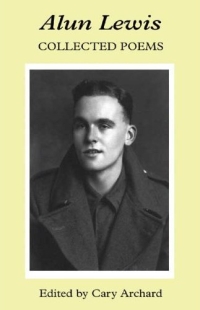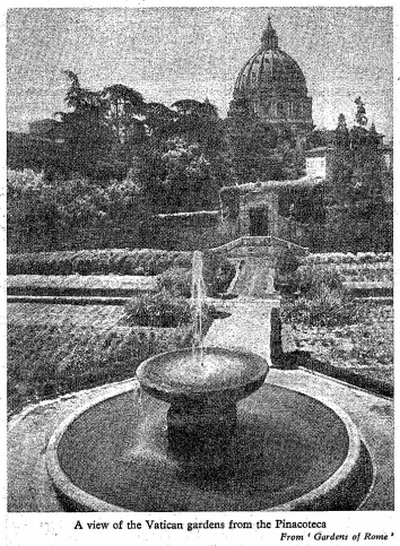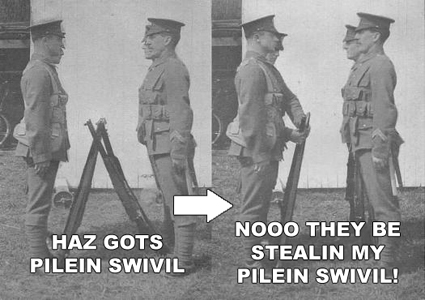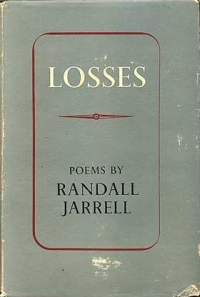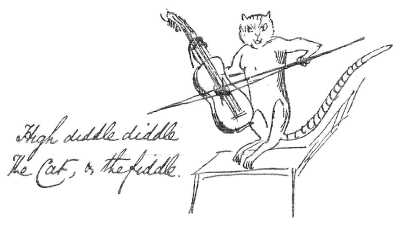|
|
Documenting the quest to track down everything written by
(and written about) the poet, translator, critic, and radio
dramatist, Henry Reed.
An obsessive, armchair attempt to assemble a comprehensive
bibliography, not just for the work of a poet, but for his
entire life.
Read " Naming of Parts."
|
Contact:
|
|
|
|
Reeding:
|
 |
I Capture the Castle: A girl and her family struggle to make ends meet in an old English castle.
|
 |
Dusty Answer: Young, privileged, earnest Judith falls in love with the family next door.
|
 |
The Heat of the Day: In wartime London, a woman finds herself caught between two men.
|
|
|
|
Elsewhere:
|
|
Posts from February 2008
|
|
|
27.4.2024
|
A recent review in The Guardian of the re-issue of Alun Lewis' Collected Poems (Amazon UK) asks the questions, 'Can the work live up to the promise of the life's sad, dark glamour? Or must Lewis be left to lie with those he styled "the quiet dead"?'
Lewis died in 1944, quietly and apparently unobserved, under somewhat mysterious circumstances while stationed in Burma, leaving behind a legacy of poems and short stories. From the publisher's synopsis:
Alun Lewis is acknowledged as one of the best British writers of World War II. The impact of his poetry on the wartime audience was immediate: his two books of verse and a volume of stories went through several printings. This collection brings together his uncollected poems, as well as his books, Raider's Dawn and Ha! Ha! Among the Trumpets. The range of his concerns, his ability to respond to his situation, the exciting use of language and imagery marked him out, in the words of Dannie Abse, as an 'authentic, inventive literary talent.' This is the third volume in a uniform edition of his writings. His wartime Letters to my Wife (1989) and Collected Stories (1991) are also available.
I often visit The Alun Lewis Page (uses frames!) when I need to re-read one of Lewis' poems, or place him into a context with Reed and other poets of the Second World War. It's a pity there aren't more such celebratory websites put together by fans of poets like Roy Fuller, Sidney Keyes, or Keith Douglas. Channel 4 does have a nice biography of Lewis in their Soldier Poets microsite.
It would appear that the 2007 edition of Lewis' Collected Poems has already become unavailable on Amazon, but a quick AbeBooks search turns up not only that volume, but his Stories and Letters to My Wife, as well.
|
1537. Radio Times, "Full Frontal Pioneer," Radio Times People, 20 April 1972, 5.
A brief article before a new production of Reed's translation of Montherlant, mentioning a possible second collection of poems.
|
This is really just for my own edification, though you may find it useful. Instead of just entering keywords, you can also add special search operators to a Google Books search—like commands—in order to narrow results to a particular author, subject, or date range. From the Advanced Book Search page:
|
1536. L.E. Sissman, "Late Empire." Halcyon 1, no. 2 (Spring 1948), 54.
Sissman reviews William Jay Smith, Karl Shapiro, Richard Eberhart, Thomas Merton, Henry Reed, and Stephen Spender.
|
I have surely spent too much time in the library today. But it has been time well spent. In preparation for traveling to the libraries at Duke University next month, I have been attempting to make a list of everything I need to complete my collection of Reed's writings, mostly book reviews and poems published in The Listener and New Statesman in the '30s and '40s. I've started with last year's Most Wanted poster, crossing off anything I've since managed to obtain. Progress has been slow, apparently.
Sitting here in the icy-cold undergraduate library, however, I noticed there were at least two items on my list within cat-swinging distance. One was a 1948 book review of The New British Poets, which only mentions Reed lumped along with Patrick Evans, G.S. Fraser, Wrey Gardiner, Sean Jennett, Vernon Watkins, and Laurie Lee. (Also, I may be the only person in town who actually bothers to pay for their microfilm photocopies, judging by the poor, flustered students working the Circulation Desk.)
The second, however, was a review of Elizabeth Bowen's A Time in Rome (1960), critiqued by the consummate Italophile himself, Henry Reed.
The photograph above is from Gardens of Rome, by Gabriel Faure (1960). Here's a more recent shot (Flickr) from (almost) the same perspective. The "Pinacoteca" is the Vatican art museum.
The review appears in The Listener from January 12, 1961, and is entitled " Rome: 'Time's Central City'" (.pdf). Reed seems to have thoroughly enjoyed it. He may have been slightly biased owing to his friendship with Bowen, but when it came to Italy, I don't believe Reed would have pulled any punches. When have you ever seen such dexterity with a semi-colon?
[A Time in Rome] is the exact antithesis of most travel books. It is magnificently unillustrated, for one thing; for another, its author is explicitly anxious not to be of help to any other visitor. It is essentially a book to be read away from Rome, not in it. It has further negative virtues; there is nothing about the unremitting winsomeness of the natives; there are none of those maudlin conversation-pieces with which even the sincerest are wont to bedizen their reminiscences; and none of the authoritative inclusiveness of the dug-in expatriate ('Gino smiled, as no one outside Florence knows how to smile: and all Florentines of course have perfect teeth'). Miss Bowen sees selectively, and with adequate passion; she is not an indiscriminate watcher; she is not a camera (nor, in point of fact, was Mr. Isherwood). If she tells you anything about Rome, she gives you a recognizable part of herself with it...[.]
'Gradually,' Reed says later, 'one begins to see that this book, like all Miss Bowen's work, is about a form of love.' At no point does he take to task any of Bowen's ideas or findings about Rome. Indeed, her Rome, he says, 'is perfectly created, and separate now from the city itself.'
|
1535. Reed, Henry. "Talks to India," Men and Books. Time & Tide 25, no. 3 (15 January 1944): 54-55.
Reed's review of Talking to India, edited by George Orwell (London: Allen & Unwin, 1943).
|
The Media Archive for Central England, MACE, is the regional film and video archive for the East and West Midlands, based at the University of Leicester. A quick browse of their collection turns up an interesting documentary from 1983, " As I Was Walking Down Bristol Street." Directed by Richie Stewart for Central Television and presented by Professor David Lodge, this short film includes an interview with Henry Reed's friend from the University of Birmingham, Walter Allen:
Description: We see b/w stills of Birmingham Snow Hill railway station and then David Lodge standing on the platform of the now derelict station (Snow Hill to Paddington was the main route to London prior to the electrification of the New Street to Euston route in 1966). We also see b/w archive of the interior of Snow Hill station (ATV news). Throughout the programme there are several stills showing Birmingham circa 1930s and Birmingham University. Lodge is a writer and lecturer at Birmingham University presents the film which examines the Birmingham literary scene of the 1930s. A group of writers, many with connections to the university, worked away from the literary world of London. The so called Birmingham Group are discussed and illustrated with b/w stills: Walter Allen (1911 - 1995); John Hampson (1901 - 1955); Leslie Halward (1905 - 1976), Walter Brierley (1900 - 1967); and Peter Chamberlain (? - ?). Also referred to is the poet W. H. Auden (1907 - 1973); the poet and lecturer Louis MacNeice (1907 - 1963) as well as the lecturers E. R. Dodd and Philip Sergeant Florence. We see the exterior of Birmingham Central Library which is the former site of the Faculty of Arts of Birmingham University. Lodge interviews Walter Allen who reminisces about the Birmingham literary scene of the 1930s and R. D. Smith (Reggie Smith - a former BBC radio producer who died in 1985) who was a contemporary of the Birmingham Group. We see Angelsey Street and Wills Street in the Lozells area of Birmingham where both Allen and Smith were born. A reader (Michael Cadman) recites poetry written by MacNeice; a section of a Halward novel; and a poem written by Auden beginning with the lines "As I walked out one evening walking down Bristol Street" which supplies this film with a title. We also see the exterior and interior of Highfields, a house at Selly Park owned by Philip Sergeant Florence where MacNeice lodged. It's difficult to tell from the wording in the film's description, but it looks like not only does Lodge interview Walter Allen, but also R.D. "Reggie" Smith. Is that how you read it? I'm hardly shocked by the lack of mention of Reed, but I'd be surprised if his name doesn't come up somewhere in the film as being a contemporary of Allen's and Smith's, on the fringes of the Birmingham Group. It would be just like Reed to end up on the cutting room floor, though.
MACE provides video clips of many of the films in its collections (but unfortunately, not for "Bristol Street.") For instance, here are the Willson family's home movies, taken in Handsworth, Birmingham, between 1939 and 1941.
|
1534. Reed, Henry. "Radio Drama," Men and Books. Time & Tide 25, no. 17 (22 April 1944): 350-358 (354).
Reed's review of Louis MacNeice's Christopher Columbus: A Radio Play (London: Faber, 1944).
|
In which we discover the true reason behind the recruits' lack of piling swivels in the second stanza of Reed's poem, "Naming of Parts":
They stolez 'em! Inspired, of course, by the renowned " I Has a Bucket."
|
1533. Friend-Periera, F.J. "Four Poets," Some Recent Books, New Review 23, no. 128 (June 1946), 482-484 [482].
A short review calls A Map of Verona more pretentious than C.C. Abbott's The Sand Castle; influenced by Eliot, Auden, MacNeice, and Day Lewis.
|
An excellent find in the series Poetry Criticism: in the entry for Randall Jarrell is a reprint of a 1948 review by Stephen Spender of Jarrell's collection Losses, from The Nation (1 May 1948). The collection contains many of Jarrell's famous poems which came out of his experiences in the Army Air Force during World War II, including "The Dead Wingman," "Pilots, Man Your Planes," and " Eighth Air Force."
Spender compares Jarrell to Robert Lowell, calling him a "modern" poet in a "certainly" American landscape; but he also compares his language to the Victorian poets:
Mr. Jarrell often reminds me of Tennyson and Browning. Or rather this will not seem strange if I quote from "Orestes at Tauris," which is a long, odd failure, merging into the language of prize poems with which the English Victorian writers once took the stage: So he looked; and yet in all that press
At Argos or Mycenae, or in all the isles
You never saw her like: a face so fair!
She wet your hair, and smoothed it with her hands,
Water ran down your face, and it looked pale
Under those dark and darkening locks; you shook them free,
And how ghastly it looked—your pale anxious face! This is Victorian Prize Poetry with a big V and two big P's, and to judge from Mr. Jarrell's remarks about Henry Reed when he does the same thing considerably better, I cannot believe Mr. Jarrell likes it himself.
"Considerably better!" Spender is, of course, referring to a dismissive review of Reed's A Map of Verona and Other Poems in The Nation just a month earlier, in which Jarrell compares Reed to "a nap after dinner."
|
1532. Vallette, Jacques. "Grand-Bretagne," Mercure de France, no. 1001 (1 January 1947): 157-158.
A contemporary French language review of Reed's A Map of Verona.
|
Almost two years ago, I was trying to settle the source of a strange quote attributed to a "Sir Henry Reed," regarding the nursery rhyme, " Hey Diddle Diddle." The quote, which appeared in two journal articles about Mother Goose, is as follows: 'I prefer to think that it commemorates the athletic lunacy to which the strange conspiracy of the cat and the fiddle incited the cow.'
I finally tracked down the original source of this quotation in vol. 117 of the series Children's Literature Review (Tom Burns, ed. Detroit: Thomson Gale, 2006. p. 60), which reprints a 1955 review by Clifton Fadiman of The Oxford Dictionary of Nursery Rhymes, edited by Iona and Peter Opie (1952).
Going to the Opie's text, I discover that the Children's Literature Review misprints the attribution as "Sir Henry Reed." The 1952 and 1997 editions of the Oxford volume (which are identical in this section) have 'The sanest observation on this rhyme seems to have been made by Sir Henry Reid'.
The double error of including the honorific "Sir" and the misspelling "Reid" leaves me to believe this is probably not our Henry. It seems more likely attributable to Sir Herbert Read, or to another Sir, altogether. And, actually, since Read wasn't knighted until 1953 and the Oxford edition was published in 1952, we are probably looking for some witty 19th century gentleman.
This was made possible using Gale's Literature Criticism Online, a database which provides access to ten collections of literary criticism, including Contemporary Literary Criticism, Poetry Criticism, and Twentieth-Century Literary Criticism, as well as Children's Literature Review. Access to Gale's databases is provided by many public and university libraries.
|
1531. Henderson, Philip. "English Poetry Since 1946." British Book News 117 (May 1950), 295.
Reed's A Map of Verona is mentioned in a survey of the previous five years of English poetry.
|
Graves, Robert. "War Poetry in this War." Listener 26, no. 667 (23 October 1941): 566.
Korte, Barbara, Ralf Schneider, and Stephanie Lethbridge, eds. Anthologies of British Poetry: Critical Perspectives from Literary and Cultural Studies. Amsterdam: Rodopi, 2000.
Lehmann, John, comp. Poems from New Writing, 1936-1946. London: John Lehmann, 1946. 85-97.
"Phenological Report." Quarterly Journal of the Royal Meteorological Society 69 (1943).
Reed, Henry. "A Map of Verona." Listener 27, no. 687 (12 March 1942): 343.
Reed, Henry. Review of Four Quartets, by T.S. Eliot. Time and Tide (9 December 1944).
Rhys, Keidrich, ed. More Poems from the Forces: A Collection of Verses by Serving Members of the Navy, Army, and Air Force. London: G. Routledge & Sons, 1943.
Camera batteries
Tire pressure
Windshield wiper fluid
|
1530. Radio Times. Billing for "The Book of My Childhood." 19 January 1951, 32.
Scheduled on BBC Midland from 8:15-8:30, an autobiographical(?) programme from Henry Reed.
|
|
|
|
1st lesson:
Reed, Henry
(1914-1986). Born: Birmingham, England, 22 February 1914; died: London, 8
December 1986.
Education: MA, University of Birmingham, 1936. Served: RAOC, 1941-42; Foreign Office, Bletchley Park, 1942-1945.
Freelance writer: BBC Features Department, 1945-1980.
Author of:
A Map of Verona: Poems (1946)
The Novel Since 1939 (1946)
Moby Dick: A Play for Radio from Herman Melville's Novel (1947)
Lessons of the War (1970)
Hilda Tablet and Others: Four Pieces for Radio (1971)
The Streets of Pompeii and Other Plays for Radio (1971)
Collected Poems (1991, 2007)
The Auction Sale (2006)
|
Search:
|
|
|
Recent tags:
|
Posts of note:
|
Archives:
|
Marginalia:
|
|
